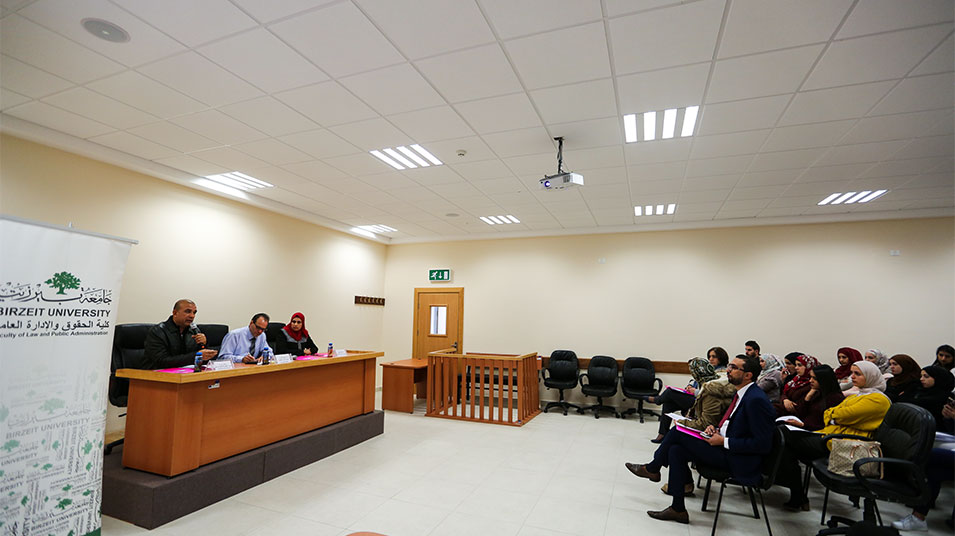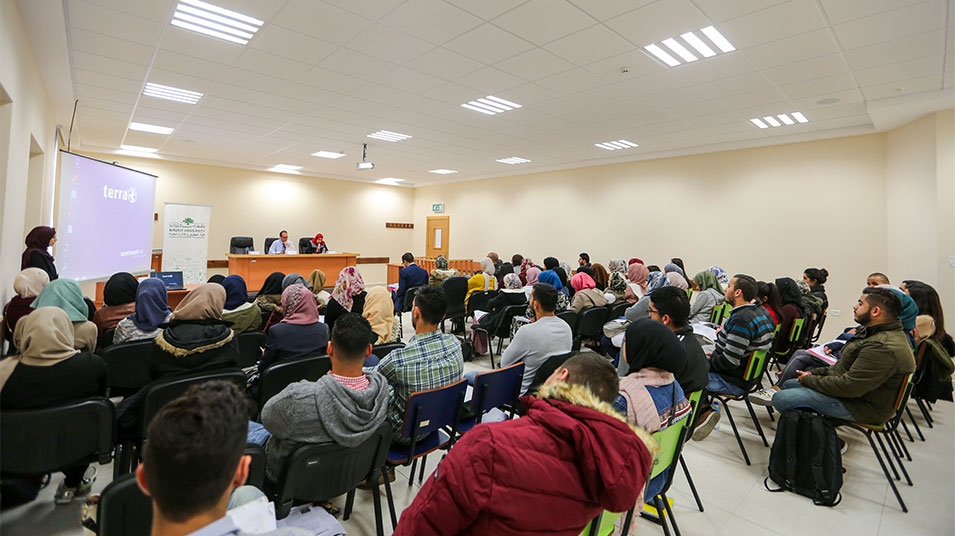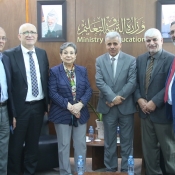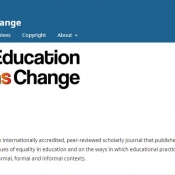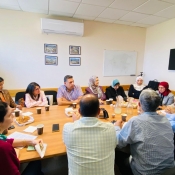Symposium investigates significance of information quality control
The Department of Public Administration in the Faculty of Law and Public Administration at Birzeit University organized a symposium exploring information data quality control entitled “Information Quality Control in Palestinian Public-Sector Oversight.” The symposium, held on December 18, 2017, was facilitated by Department of Public Administration Professor Dr. Ayman Zaru.
The Chair of the Department of Public Administration, Mayyada Badawi, reiterated the importance of such symposiums and workshops, “These events are the culmination of our efforts in reflecting and addressing the needs of the Palestinian community and the Department’s students. By hosting experts and officials from various sectors – chief of which is the Public Sector – and engaging in vital topics such as information data quality control in public oversight, we hope to make an noticeable difference in the life of Palestinians.”
In his presentation, entitled “Right to Access Information: Between Promises and Reality,” Executive Director of the Coalition for Accountability and Integrity (AMAN) Majdi Abu Zaid explored the difficulties and complications facing citizens, researchers, and members of the civil society in accessing public-sector information.
“The Right to Access Information law,” Abu Zaid said, “is yet to be issued because of the lack of true political will to pass such a law. In the future, a Right to Access Information law may be passed, but it would be a ‘right to access information law’ by name only. The political powers that be might draft a law that actually restricts access to information to an even bigger extent, just like the Moroccan version of that law, which was aptly named by its opponents ‘the Right to Restrict Access to Information.’”
The General Director of Legal Affairs at the Palestinian Anti-Corruption Commission, Rasha Amarni, detailed the Commission’s role in disseminating information to citizens in a presentation entitled “Mechanisms for Filing Complaints and Processing Procedures at the Palestinian Anti-Corruption Commission.”
“Information quality control,” added Amarni, “facilitates our work on two levels: firstly, it prevents instances of corruption through the extensive awareness campaigns done by the Commission, which are based on disseminating sufficient and accurate information to citizens. Secondly, it investigates cases of corruption through complaint retrieval and processing per standards procedures and relevant codes of conduct.”
“Among the mechanisms for filing complaints used at the Commissions are formal complaints, tips, reports, and the Commission’s own corruption investigations. While we do receive and process a relatively large number of corruption complaints, it is a lot less than the number members of the society would imagine,” concluded the General Director of Legal Affairs.
Director of the Planning and Development Unit at the State Audit and Administrative Control Bureau (SAACB) Yousef Hantash highlighted the Bureau’s role in releasing yearly oversight reports in his presentation entitled “Disseminating Oversight Information.”
“Accurate information not only spotlights areas of malfunction or fault at agencies audited by the Bureau, but it also serves as a control model to check whether the public sector is performing within relevant codes and laws, whether this performance is the best use of public time and money, and whether there have been any deviations from the fiscal and administrative standards. All of these constitute means to an end which is a wise government that performs within the highest standards of transparency, integrity, and accountability,” explained Hantash.
Students and attendees were given the chance to discuss the presentations and voice their questions and concerns at the end of the symposium.

